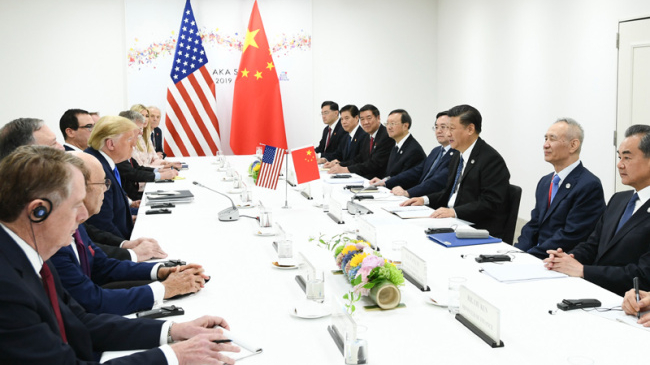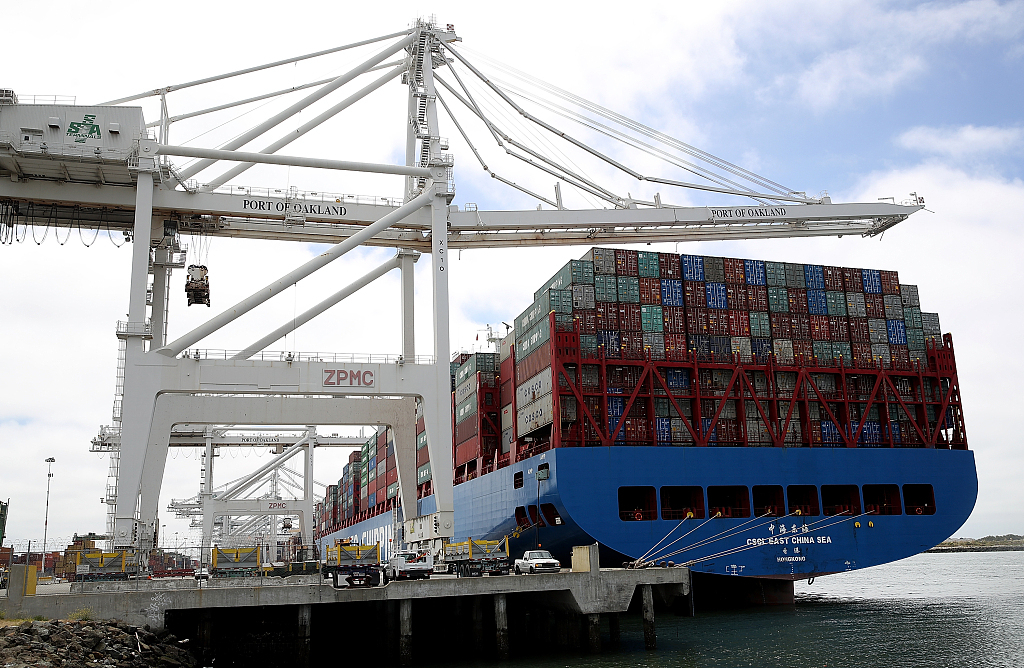

Editor's note: The following article was first published by China Plus on July 5, 2019. The article does not necessarily reflect the views of CGTN.
The Washington Post recently published an open letter to U.S. President Donald Trump and members of Congress on Wednesday entitled "China is not an enemy." The open letter was signed by around 100 people from American academic, diplomatic, military, and business circles. The letter expressed concerns about deteriorating U.S. relationship with China, which the signatories believe does not serve U.S. interests. The letter said there is no single consensus in Washington on endorsing an overall adversarial stance toward China, as some people believe exists.
The letter said that China is not an economic enemy, and that the U.S. has taken many actions that have directly contributed to the downward spiral of the bilateral relationship. It points out that the U.S.' attempts to treat China as an enemy and to decouple it from the global economy will damage the standing of the U.S. in the world and undermine the economic interests of all nations, and that China's engagement in the international system is essential to the system's survival and effective action on common problems such as climate change.
The interests of the U.S., it said, are best served by restoring its ability to compete effectively in a changing world and by working alongside other nations and international organizations, rather than by promoting a counterproductive effort to undermine and contain China.
The five authors of this open letter are M. Taylor Fravel, a professor of political science at MIT; J. Stapleton Roy, a distinguished scholar at the Wilson Center and a former U.S. ambassador to China; Michael D. Swaine, a senior fellow at the Carnegie Endowment for International Peace; Susan A. Thornton, a senior fellow at Yale Law School's Paul Tsai China Center and a former acting assistant secretary of state for East Asian and Pacific affairs; and Ezra Vogel, a professor emeritus at Harvard University.

Hong Kong-based CSCL East China Sea container ship at the Port of Oakland in Oakland, California, U.S., June 20, 2018. /VCG Photo
Among them are experts and scholars engaged in the study of China-U.S. relations, and political figures with rich diplomatic experience. They reached a consensus with the letter's many signatories. These signatories are Americans from all walks of life who believe that hostility toward China is not in the interest of their country. Their voices point to the policy of confrontation with China being advocated by a handful of hawkish politicians in the U.S. as being a minority view.
The open letter also shows that the outcomes of the meeting in Osaka between Chinese President Xi Jinping and U.S. President Donald Trump are in line with the will of the people in both countries. The Chinese and U.S. leaders reached an agreement to continue to advance bilateral ties based on coordination, cooperation, and stability, and agreed to restart the trade talks on the basis of equality and mutual respect.
As the letter noted, Beijing is not an economic enemy of Washington. The two countries account for 40 percent of the world's GDP, and they have benefited greatly from each other's growing prosperity. This is why the decision by Washington to impose tariffs on imports from China is a loss for both sides.
And they're clearly not achieving the desired results, according to the data released by the U.S. Department of Commerce on Wednesday, the U.S. trade deficit with China increased by 12.2 percent to 30.2 billion U.S. dollars in May. The tariffs are not the magic bullet for the country's economic problems that some may have hoped.
The negotiating teams from the two countries will now turn their attention to overcoming the remaining sticking points, which include the decision by the U.S. to unilaterally hike tariffs on imports from China. These additional levies will need to be scrapped as part of any deal reached between the two countries. Reaching a final agreement will require determined efforts by both sides, but if the negotiations can move forward in the spirit of equality and mutual respect, both countries will emerge as winners.
(Cover: Chinese President Xi Jinping meets with U.S. President Donald Trump in Osaka, Japan, June 29, 2019. /Xinhua Photo)
(If you want to contribute and have specific expertise, please contact us at opinions@cgtn.com.)

Copyright © 2018 CGTN. Beijing ICP prepared NO.16065310-3
Copyright © 2018 CGTN. Beijing ICP prepared NO.16065310-3